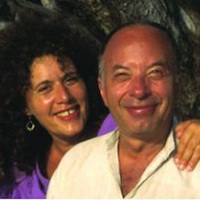Yoga has come a long way from its roots in the east.
As it has become more popular in the west teachers have added their own twists—both literally and figuratively. In the process of becoming so widespread, however, yoga often gets misunderstood by both teachers and practitioners.
Yoga is a way of life, the uniting of the body, mind and spirit. Its real purpose is not just to become physically fit or mentally relaxed, but also to deepen our own spirituality, enabling us to be more caring and aware, ultimately leading to self-realization. It is about making friends with our world, true inner happiness, and having a clear mind that is free from delusion.
Developed thousands of years ago, yoga has many different aspects to help bring awakening. These include ethics, discipline, relaxation, service, meditation, devotion, knowledge and movement. And it is in some of these other areas that we are seeing a lack of awareness, real misuse, and even abusive behavior.
In the early days, when yoga first became known in the West, the only way to train was by going to India or by a Swami or yoga master coming from India. They were the experts who embodied the wisdom of the ancients. For instance, Ed trained at the respected Bihar School of Yoga in India in 1968, in an unbroken lineage of yoga masters. He was initiated as a Swami by Paramahamsa Satyananda, whose guru was the renown Swami Sivananda of Rishikesh.
Nowadays, trainee teachers are being taught in “yoga schools” by western teachers, many, sadly, without the benefit of the traditional lineage. As a result, misunderstandings get passed on from teacher to student, in particular the idea that yoga is basically just exercise, without the addition of the rest of the teachings. For example, relaxation is sometimes included just for the last five minutes of a class, whereas the practice of yoga nidra (pratyahara), a deep, dynamic relaxation also known as yogic sleep, is traditionally practiced for at least 20-30 minutes. Similarly with dharana (concentration), and dhyana (meditation), that are rarely emphasized enough and yet are main teachings.
We went into one yoga center near us and no one there had heard of any of the “other” yoga teachings; they just knew and taught Hatha yoga as an exercise class. This is not unusual, but hatha is only one aspect of a rich and expansive system and these teachings are there for a reason: to develop conscious awareness.
In particular, we see yoga teachers wanting to be the most well known—my yoga, my meditation, my practice is the best. And even though the traditional methods are well proven over thousands of years, in an attempt to stand out from the crowd many create their own ‘brand’ of yoga, often loosing the essence of the original meaning. It’s gone so far that, as reported in the UK Daily Mail: “Babies left screaming in terror as they are swung around head of ‘baby yoga’ guru who claims it is good for them.”
Being in the role of a teacher is a position laden with responsibility. As notoriety grows we see how easily the ego can get involved and how deluding power can become. Some teachers use their role in order to make more money (a lot of it!), to have sex with students, or, as reported in a recent case, to use students to receive drugs. Gone are the teachings of yama and niyama, instructions on how to live an ethical and caring life through practicing harmlessness (ahimsa), being truthful, not being greedy, or indulging in addictions, as well as the importance of self-reflection so that we become aware of our own habits and mental tendencies.
Anyone can be a teacher as long as we chose that person to guide us. Which doesn’t mean that person has practiced all of the teachings, or is living a yogic life. Those that have tasted the beauty of yoga and embodied the depth, breadth, and full intent of its different forms could not harm, use or abuse another. They will have realized the beauty within themselves and be able to bring that out in their students. There is really no true yoga without love. A teacher with a loving heart is like a precious jewel.
photo by Raios de Luz Glauca Goes @ Flickr.com
****
Deb is the author of the award-winning Your Body Speaks Your Mind: Decoding the Emotional, Psychological, and Spiritual Messages That Underlie Illness.
Our 3 meditation CD’s: Metta—Loving kindness and Forgiveness; Samadhi–Breath Awareness and Insight; and Yoga Nidra–Inner Conscious Relaxation, are available at: www.EdandDebShapiro.com
~
Editor: Brianna Bemel

 Share on bsky
Share on bsky




Read 10 comments and reply